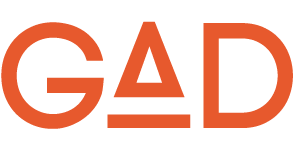CALL FOR PAPERS, FOSAP (Federation of Small Anthropology Programs)
Panel for Annual Meeting of the American Anthropological Association
San Jose, CA November 2018
Over the past decade, undergraduate institutions, including small liberal arts colleges and universities, have increasingly incorporated civic and community engagement courses, minors and concentrations, projects, and even stand-alone centers into their curricula. These efforts often include consideration of issues of ethical collaboration, participatory practices, and partnerships with community partners, along with the value of public scholarship.
For anthropologists, meanings of “community engagement” have long been at the center of ethnographic practice. We fret over the relationships we form with the communities we study, contemplate how our research findings are a reflex of these engagements, and consider the “politics of representation” when we share our scholarship with communities beyond academia.
This panel aims to engage new and recent trends in community-based teaching and learning from the perspective of anthropology. It asks, how are anthropologists, especially those invested in the teaching of undergraduates, experiencing the turn to community engagement and collaboration? What historic forms of anthropological engagement, conceptualizations of community, and the different forms of the presentation of anthropological findings being incorporated into the present focus on community engagement across undergraduate campuses? In other words, how does anthropology “speak to” these trends in ways both supportive and critical?
As we think about community engagement, we’re particularly interested in course experiments that go beyond the “field school” model so familiar to undergraduate teaching. While field schools are often fashioned to simulate the longer-term, iterative process of fieldwork so dear to the discipline, community engagement by contrast frequently seeks to get students involved in shorter term and less immersion-based activities. Community engagement projects, for instance, may be only one small component of an individual class. Similarly, whereas field schools often emphasize methods training, community-based teaching and learning tend to be more problem-based, time-sensitive (consider “pop up” curated exhibits, for example), generally more responsive to the pragmatic needs of community partners, and less concerned with the anthropologist’s focus on rapport-building. We seek panelists who have grappled with these tensions and who can present on their experiences in and out of the classroom.
Our overarching goal with this panel is to map a wide variety of anthropological interventions by instructors of undergraduate students doing civic and community engagement work. We are especially interested in examples of new and innovative pedagogies, technological applications, display and exhibition formats, and methodologies, including, but not limited to, the use of “pop ups”, design thinking, social entrepreneurship, community-based arts, collaborative ethnography, community-based participatory research, and the application of new digital media.
The deadline for panel proposals (we are using the “oral presentation sessions” format) is April 16th, 2pm EDT. Please send an abstract of your proposal (50-250 words) to Panel Chair Jason Pribilsky (pribiljc@whitman.edu) no later than April 10th. The meetings run from Nov. 14-18th with the general theme of “Change in the Anthropological Imagination: Resistance, Resilience and Adaptation”. You can find complete Annual Meeting information on the AAA website.
